Having proper Korean Business Etiquette and knowing Korean Business Culture are key factors in running a successful business or working in Korea.
Every country has its own particular working and business culture, and South Korean society is not any different. South Korean business culture can be a bit perilous to navigate without the right knowledge.
If you’re on your way to doing business in South Korea or work in Korea, then you’ll definitely want to read up on South Korean business etiquette and business practices before your first meeting.
Here’s a PDF of some useful South Korea Business Customs, Practices, and Traditions.
Contents
Korean values
The two keywords to start your “lesson” on business etiquette in Korea with are “Confucian values” and “기분” (gibun). ”
What are Confucian Values?
“Confucian values” are still very much evident in Korean business culture as it is integrated into Korean culture in general. They hold respect for authority, harmony, collectivity, working hard, and modesty as treasured values.
What is 기분 (gibun)?
“Gibun” is a Korean concept that is another expression for “face,” as in “saving face.” Face-saving in Korean culture is akin to one’s reputation among their peers. It’s important to maintain face in South Korea. Since Koreans tend to seek harmonious relationships in both work life and personal life, they don’t appreciate actions that could disrupt that, regardless of how good for business it might be.
While South Korea has faced enormous business growth and progress after the Korean War, some of these traditional values still hold true up until today.
Formality and Warming Up in Korea
These concepts might take a while for a straightforward Westerner to grasp. For example, if you make a request that a Korean can’t (or won’t) be able to fulfill, you’ll often not get a direct “no.” Instead, they may try to imply that it can’t be done or skirt the issue.
You may also feel that new business acquaintances and business counterparts in South Korea maintain a level of formality and emotional distance from you, even if you try to be friendly and “break the ice” with them. This isn’t an attempt to be rude or cold.
If you’ve been studying Korean for a while, you know that your communication style changes depending on your age and status. This is true for many Asian cultures.
An important aspect of showing respect in South Korea is respecting another’s position in the hierarchy, especially if it’s perceived as higher than their own.
South Korean business etiquette dictates that you give due respect to a senior person in your company. This is also a big reason why drinking alcohol is so important for business relationships. Koreans tend to do this as an excuse to drop some of that formality to become closer.
So begin your interactions with a bit of reserved formality and try not to act too excited or enthusiastic. Of course, if South Koreans you are working with are displaying a high level of energy, you can try to match their pace to make them feel more comfortable.
Korean Business Etiquette that you should follow
Korean Business Culture is all about combining centuries-old Korean Social Etiquette and smart Business practices. In this part, we’ll tell you how to meet a business associate for the first time, have business meetings, handle business relationships and contacts, and even how to drink alcohol with Korean businesspeople.
Meeting a Korean for the first time
In South Korea, it’s common to be introduced to a new business associate by someone else, as opposed to introducing yourself. This helps establish the relationship between the two and the proper etiquette they should use towards one another.
Of course, if there’s no third party, then it’s no problem to introduce yourself. Remember to give a warm smile. Just because you should start formally doesn’t mean you can’t start friendly as well!
Korean names and titles
Many Koreans adopt Western names when learning English and may use these when doing business with you. However, they will likely be delighted if you know their Korean name as well (and can pronounce it properly), as most co-workers or business counterparts are addressed with someone’s Title + Family name.
Try to be fully knowledgeable of their title and department, and address them with their title and family name, if applicable. A Korean’s work title and position are a source of great pride, so it’s very helpful if you recognize this.
A Handshake vs. Bowing
When meeting someone for the very first time, it’s good to remember the importance of Korean non-verbal communication. The handshake or the bow can say a lot about you before you actually verbalize anything. It’s important to be conscious of these things when in a business situation.
These days it’s more common in South Korea to shake hands when you meet someone for the first time. However, that hasn’t entirely taken the place of bowing, which might still take place before or during the handshake.
Korean bows are not as pronounced as in other countries like Japan, but the younger or more junior party should always bow deeper.
When shaking hands, you can also bow slightly and break eye contact. Your handshake can be as firm as the other party offers, but it’s often better if it’s on the gentler side. When you avoid direct eye contact, you are signaling that the person you are shaking hands with is important.
During the handshake, the person in a lower position might also shake with both hands, support their other hand at the forearm, or place their hand across their belly. These actions show a greater degree of respect and deference.
As a Westerner, you don’t need to worry about bowing for the most part. But although you’re not expected to bow, the gesture is always appreciated by Koreans.
Also, note that it’s not unusual for Korean women to offer a bow instead of a handshake. Don’t think anything of it if that happens. For formal and business situations, it’s considered more appropriate for Korean women to maintain a certain distance from men.
Likewise, if you’re a woman, you have the option of just bowing instead of shaking hands.
Handling Business Cards
You should go into your initial meetings with your business cards ready to be given to the person you are meeting. This often takes place immediately before or after shaking hands.
When presenting and receiving a business card from someone else, you should use both hands. Spend 30 seconds to look it over and read it carefully, even if you’re meeting several people. Each will wait their turn and appreciate the short time you take to give attention to the card in your hand.
It’s polite to make some comments on their position or some other piece of information on their business cards. Hold each card as you comment on it. Once you’re done reading it, put the card in front of you on the table.
If you’re standing, then hang onto the business card until you are able to put it in your briefcase. This is better than putting them directly into your pocket. If you have a business card holder, that’s the perfect place to put the ones you receive.
Don’t write on the business cards or put them in your back pocket to sit on. Business cards are an extension of a Korean worker’s position and title, and treating their business card poorly could be interpreted as a lack of respect for their position.
Eye Contact in South Korea
Koreans tend to avoid making eye contact with someone as a sign of respect. However, in the business world, it’s important to maintain eye contact with whom you’re doing business to show your sincerity and trustworthiness (except when bowing).
Of course, do so in a natural and friendly way. It’s not a staring contest!
Remember, body language and facial expressions count too.
Language abilities
Most Korean business people you interact with will have a good command of English but may still be nervous about using it. So if you know a few Korean words, phrases and are able to express time and numbers in Korean, it’s a great idea to use them. To help you out, we have a separate article with useful business vocabulary that you can study.
Demonstrating an interest in their culture (specifically Korean business culture) and a desire to understand with a few words, Korean can go a long way toward putting them at ease.
If you want a structured course that will help you learn Korean fast, you can check out the 90 Day Korean Membership Program. The self-paced lessons can help you learn Korean in your own time! It’s perfect for busy business people.
Korean Business Meeting
When doing Korean Business meetings, always make appointments for meetings in advance, even a few weeks beforehand if possible. Meetings in South Korea are often scheduled in the mid-morning or mid-afternoon, without cutting into anyone’s lunchtime.
Be aware of the reality that if these meetings get canceled, it often happens with little or no advance notice. If it happens once, it’s probably of no malicious intent, but because something unavoidable popped up.
However, if the same person repeatedly cancels on you, it could indicate that they’re not that interested in doing business with you. Or possibly that doing business with you must be postponed for some other reason.
If you’d like to reduce the possibility of a misunderstanding during a meeting, send out written materials on what you will cover beforehand. This can be a useful action, and Koreans will see you as more organized.
When showing up, be punctual and prepare a small, tasteful gift if it’s the first meeting. Gift-giving is a nice gesture, and Koreans will often appreciate it.
However, don’t give anything too grandiose or expensive on the first encounter. This will cause them to lose face if they didn’t prepare a gift for you.
Punctuality in South Korea
Koreans value punctuality, so be on time or a little early. But also understand that your Korean associate may have a busy schedule and might be somewhat late. If you will be late, be sure to call ahead and let them know. Punctuality is a sign of respect.
Keep in mind that if your meeting is in Seoul, you may run into heavy traffic or have challenges finding a taxi.
Additionally, some of the buildings may not be easy to find, even for the taxi driver. Given that, make sure you factor in a minimum 30-minute time buffer.
Sensitive Topics during a Korean Business Meeting
Much like a Western working place, it’s important to avoid discussing sensitive topics.
Some examples include discussing North Korea, issues related to your Korean associate’s family, or politics in general. This is doubly important in South Korea since a harmonious work environment is highly valued.
Many Koreans will have strong opinions on these issues; some even opposed to their other Korean colleagues. Try not to introduce topics that could disrupt social harmony, as this won’t be seen as a good sign to do business with you.
Understanding business contracts
The interpersonal relationships between the companies are often viewed as more important than the contract itself.
The contract is simply an outline of the working relationship rather than a binding agreement.
Be aware of this and communicate clearly with whomever you’ll be signing a contract within terms of your expectations and theirs. That way, you can avoid some unpleasant surprises in what you expected of them and of you.
Building better business relationships
Strong business relationships with your Korean business partner or client need nurturing and maintenance in order to be sustained. Korean businesses, even small ones, often deal with dozens of different individuals.
So it helps to keep yourself fresh in their minds.
Dinner invitations extended to a senior person or client aren’t uncommon and are widely seen as a good business strategy.
To keep the relationship strong, you could give gifts to them on their important national holidays (Korean Thanksgiving and Lunar New Year, for example). You could also contact them and visit them on your trips to Korea, even when your business is unrelated to theirs.
In the latter case, it’s good form to bring a small souvenir from wherever you were, usually a snack of some kind that has a professional appearance. This is common practice and demonstrates a level of commitment to a working relationship with them.
Attitudes and compliments
Something else that you should know about Korean people and Korean business culture is that it’s important to be as modest and humble as you can. You might not want to completely undersell your company, but it’s also best to keep your boasting about its achievements to a minimum.
This includes boasting too much about yourself or even complimenting your Korean associate too much. Of course, everyone enjoys a compliment or two thrown their way, especially when deserved. But too much will be viewed as insincere in Korea.
Direct and Indirect Talk
When expressing your opinions or possible criticism, try to be as delicate as possible instead of being too direct. Saving face is a big thing in Korea, and doing anything that could cause someone to lose face in public can be quite humiliating.
If it’s necessary to bring up an issue or criticism, it’s better to do so in private with that Korean individual so they can avoid being embarrassed.
Decision Making
If you’re from the Western world, you might be accustomed to fast decision-making. However, in a country like Korea, where the sense of hierarchy and collective harmony is stronger, things often move at a slower pace.
Stay patient, as hard as it may be, and don’t expect any decisions to be made in the first meeting. Maybe even learn a few words of Korean, or at least keep your English as clear and simple as possible for your business partners to understand.
Once business relations in Korea are formed, they are extremely strong. Therefore, Korean businesses exercise great care in forming new ones.
Bonding and building rapport
To show them that you are interested in a long-term relationship, don’t be afraid to bond through personal conversations and building rapport. However, remember not to get too personal with them. Be friendly but be professional.
A big part of doing business in Korea involves eating and drinking together after business hours. Dinner invitations after work are very common. There’s even a high chance that at least one of your business meetings will take place in a restaurant or a bar.
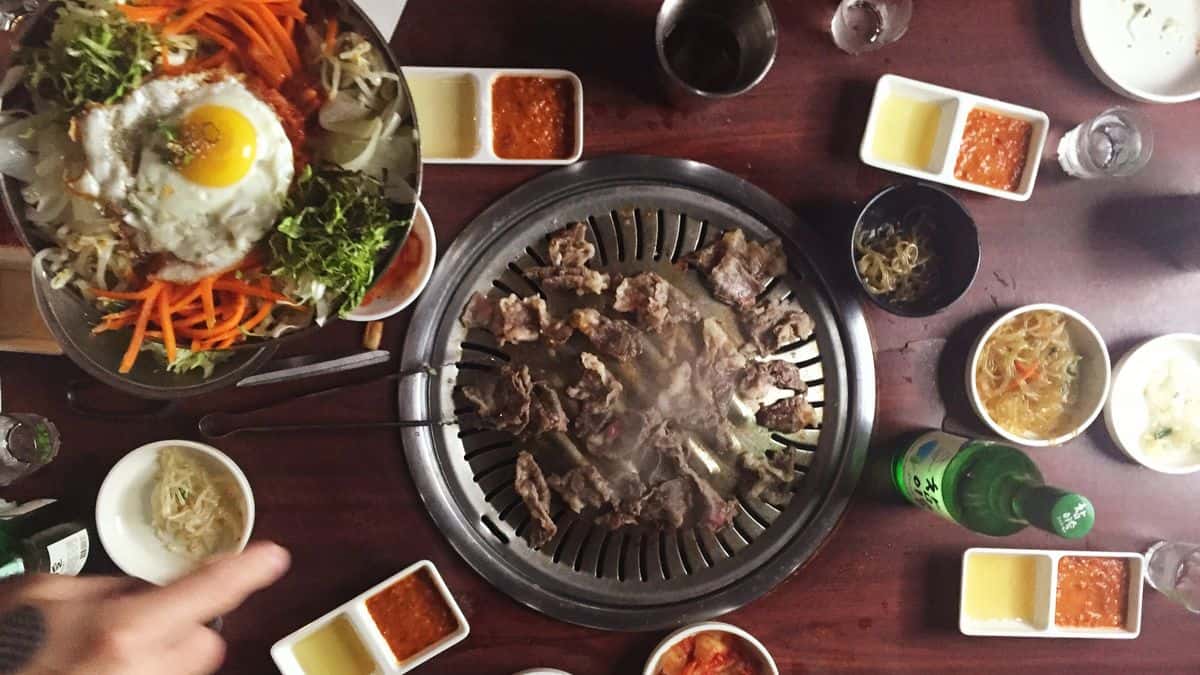
Don’t be surprised by this, as eating and drinking together (especially in a professional setting) is a major part of Korean culture.
Because eating and drinking are so important in Korean culture, participating in drinking with your potential business partner is a great way to help form that interpersonal working relationship with them. You might even suggest going out to eat or drink together after your meeting concludes.
It’s often during these interactions that the real business is done, and strong working relationships with business partners are formed.
However, if for some reason you can’t drink – such as religious reasons – be honest with them about it. If you’re just not a fan of alcohol, be honest about that, too.
Koreans do business around the world, so they’re familiar with different customs. They’ll be understanding, but it may take more time to form a stronger business relationship with you.
Wrap Up
Now that you’re more knowledgeable about Korean business etiquette, you can walk into that meeting with confidence!
What questions do you have about Korean business etiquette? Let us know in the comments below!

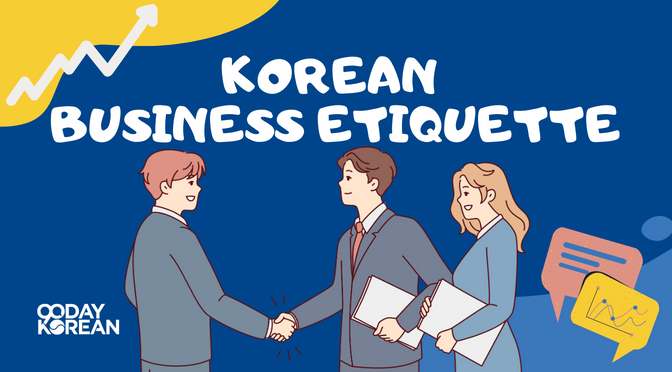





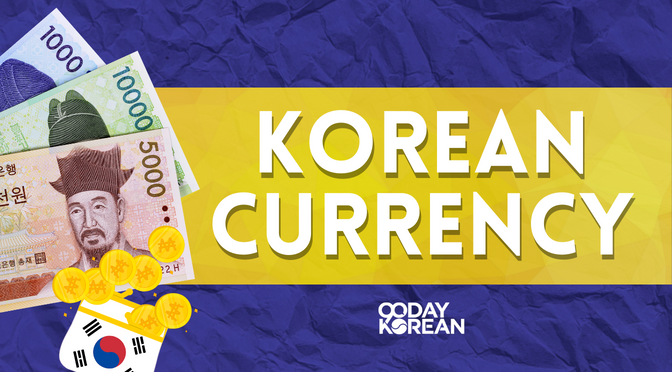
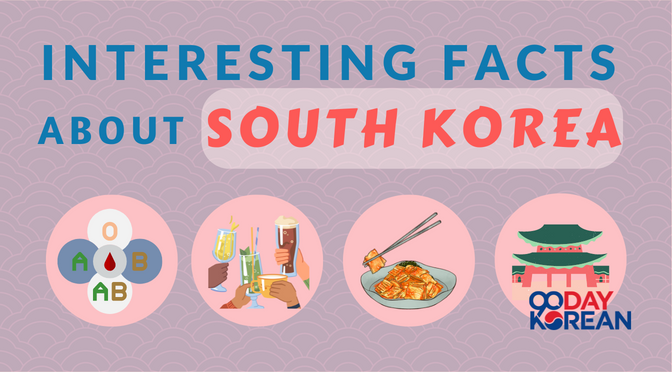
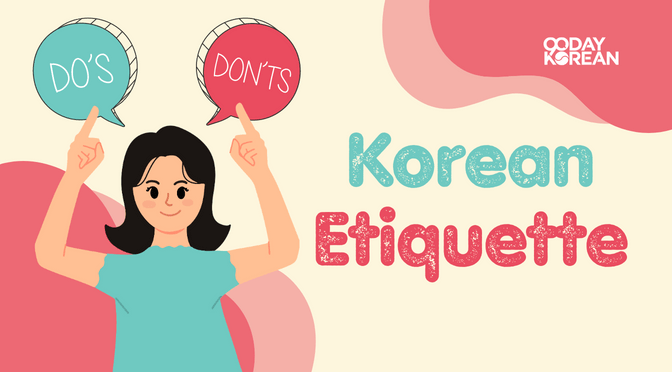

I am from Bosnia and Herzegovina. I really love Korea and I want come in Korea to meet Korea, to learn Korean language and to find job in Korea.
Awesome! Sounds like a plan. If you want, we have resources to help you with that: South Korea – History, facts, and modern life on the peninsula, Learn Korean Online: How-To Guide for Language Study, and Jobs in Korean.
https://www.90daykorean.com/korea/
https://www.90daykorean.com/learn-korean/
https://www.90daykorean.com/jobs-in-korean/